Scan contact card

Iosif Angelidis is an IT professional with seven (7) years of experience in software development. His IT skills span from IT programming with actual experience in C, C++, Java, Golang and Python, among other languages. This knowledge is gained both from self-motive to invest in new skill-sets and as part of his two years engagement in a Named Entity Recognizer thesis, which recognizes and extracts persons, organizations, geo-political entities, legal references, public documents and unofficial geographical landmarks found in the Government Gazette by utilizing Neural Networks and Deep Learning technologies.
During his military tour, Iosif has been occupied in the IT Division offering his experience in supporting 3 projects: MIP 3, ΣΧΚ and ΣΔΕΠ. This support came in the form of major refactoring, implementation of new features, optimization and critical performance gains, as well as general user support. His responsibilities further included the training of new staff and knowledge transferring.
During his work at UBITECH (July 2020 - February 2022), he has worked as a tech lead, as well as contributed in numerous technical implementations, partially managed and delivered reports for multiple H2020 and national projects co-funded by the EU.
Currently, he is working as a Python software engineer at Textkernel's Jobsdata Pipeline team.
Last, but not least, Iosif Angelidis has shown particular interest in Artificial Intelligence courses both as a tutor (assistant professor) and as a practitioner.
Experience
Python Software Engineer, Textkernel B.V.
- Involved in the development lifecycle of Jobs Data.
- Tech lead for a number of epics, plus mentoring new team members.
- DevOps contributions such as dockerization, deployment and CI/CD pipelines.
Programming skillsets developed during this time involve K8s, Elasticsearch, Cassandra, AstraDB, Postgres, MySQL, DynamoDB, Pycharm, Docker, CI/CD, Jenkins, Python, Golang.
IT Programmer, Ubitech LTD
- Involved in the development of a data market, Android applications, ABAC mechanisms, API Gateways, semantic models design, hybrid encryption protocols, deep learning models and RESTful services.
- Tech lead, responsible for supervising the development of a number of projects and contributing to the code development.
- DevOps contributions such as dockerization, deployment and CI/CD pipelines.
- Requirement analysis on functional, non-functional, technical, data, user requirements based on Agile methodology and User stories.
- Contributions to deliverables writing, technical documentation and demonstrators.
- Partial management of multiple H2020 and national projects co-founded by the EU.
- Frequent coordination telcos with partners to meet the projects’ needs.
Programming skillsets developed during this time involve Java, Spring Boot, Quarkus, HTML 5, CSS 3, JavaScript, Leaflet JS, REST, IntelliJ, Android Stutio, Keras, Tensorflow, Pandas, Scikit-learn, ABAC, RBAC, ACL, Elasticsearch, MongoDB, MySQL, PHPmyAdmin, Maven, Pycharm, Docker, CI/CD.
Management skills developed during this time involve requirement analysis (functional, non-functional, technical, data, user requirements), Agile methodology, User stories, conceptual/technical/deployment architecture design.
IT Programmer, Greek Army IT Support Center (Military Service IT Division)
During his military tour, he was tasked with offering his experience in supporting 3 projects: the implementation of the Multi-Interoperability Protocol 3.0, the Crisis Management System and the Information ManagementControl System. These projects required major code refactoring, optimizations, critical performance gains (e.g., database requests taking about 3 seconds compared to 15 minutes) and implementation of brand new features, involving classified data as well as geospatial information. Additionally, he was responsible for training new staff and providing user support for the platforms.
Programming skillsets developed during this time involve Java, EJBs, JSF, PrimeFaces, Oracle 11g/12c, Hibernate, HTML 5, CSS 3, JavaScript, Leaflet JS, REST, SOAP, XML, SQL Server Management Studio, Toad, WildFly/JBoss, IntelliJ.
IT Programmer, University of Athens
In the context of his MSc thesis, “Named Entity Recognition and Linking in Greek Legislation”, he developed and maintained a Named Entity Recognizer which recognizes and extracts persons, organizations, geo-political entities, legal references, public documents and unofficial geographical landmarks found in the Government Gazette by utilizing Neural Networks and Deep Learning technologies.
Programming skillsets developed during this time involve Python, Keras, TF, SciKit Learn, Numpy, Pandas, (Geo/st)SPARQL, REST, HTML 5, CSS 3, RDF, OWL, Maven, PyCharm.
Skills
Soft/Management
Programming Languages
Applications
Security
Access Control
DevOps
Frameworks & Libraries
Shell Scripting
Servers & databases
Integrated Desktop Environments
Geospatial Systems
Version Control
Operating Systems
General
Projects

Jobs Data (2022-present)
The largest searchable job database for Lead Generation, Labour Market Analytics, Skills Demand Data and Outplacement Over 1 billion current and historical job postings in one central tool. Covering 10 markets across North America and Europe Updated real-time with the latest jobs per market, deduplicated and searchable Available via portal, API and data feed See the ads placed by existing or potential customers or competitors in the job market Rapidly find the right job for your candidate Identify trends and gather job market information.
Keywords: K8s, Elasticsearch, Cassandra, AstraDB, Postgres, MySQL, DynamoDB, Pycharm, Docker, CI/CD, Jenkins, Python, Golang
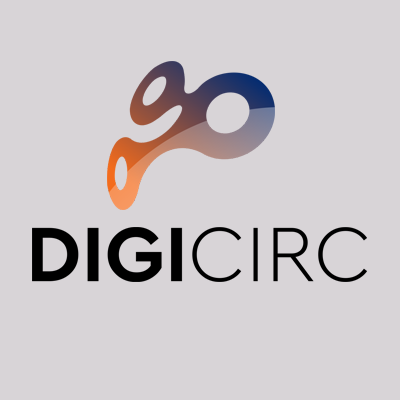
iReCirc (2021-2022)
iReCirc is a project participating in the EU accelerator program DigiCirc (which is about circular economies). It will develop intelligent universal solutions for the recovery of nutrients and water from food processing.
Keywords: Python, Keras, TF, Scikit Learn, Numpy, Pandas, flask, REST, HTML 5, CSS 3, Maven, IntelliJ, PyCharm, Java, Javascript, Docker, CI/CD

PHAEDON (2020-2022)
The PHAEDON project aims at enhancing transparency in the agri-food sector through an innovative and state-of-theart food traceability system which supports all the stakeholders and processes of the value chain, in all stages from production to consumption. More specifically, the project will design, implement and evaluate a fully decentralized traceability system for the agri-food sector supply chain, and specifically for the supply-chain of the Sea Buckthorn from Meteora, using Distributed Ledger Technologies, Edge Computing and IoT. The system will provide food tracking (keeping record of the product at each stage) and food tracing (reconstructing the history of the data recorded by the tracking process) functionalities. At the same time, additional functionalities will be implemented for the two main end-user categories, (the professionals who are involved in the production of the food product and the consumers) including monitoring, alerting and feedback mechanisms related to food safety. The lifecycle of PHAEDON is organized in 10 trimesters (30 months) and includes a series of technical and non-technical tasks so as to assure smooth and effective execution and progress.
Keywords: Hyperledger Fabric, MinIO, MongoDB, REST, Swagger, React Native

3DFollicleAI (2020-2022)
The objectives of the project include the investigation of the clinical possibilities of automatic 3D ultrasound imaging of the ovaries in order to increase the success rates of IVF, as well as the application of artificial intelligence to implement a referral machine. The project is implemented in the framework of the RESEARCH - CREATE - INNOVATE Action and is co-financed by the European Regional Development Fund (ERDF) of the European Union and national resources, through the Research programme Competitiveness, Entrepreneurship & Innovation (EPANEK) (project code: T1EDK-01429).
Keywords: Python, Keras, TF, Scikit Learn, Numpy, Pandas, PyCharm, REST, flask, Docker

ENDORSE (2020-2022)
The object of the project is the design, implementation and evaluation of an original integrated platform based on advanced and emerging Information and Communication Technologies (ICT) and playfulness and biofeedback mechanisms for the promotion of self-management of Type 1 Diabetes (T1D) and obesity. ENDORSE will focus on developing an application and service environment to raise awareness, educate, monitor, comply, promote a healthy lifestyle and support decision making by allowing target groups (children and adolescents with T1D and/or obesity) to play a leading role and not to be mere observers in their health care.
Keywords: REST, Java, Spring Boot, Elasticsearch, IntelliJ, Maven, Docker, Swagger

GLASS (2020-2022)
The vision of the EU-funded GLASS project is to place EU citizens in control of their personal information and streamline access to eGovernment services across Member States and beyond. The project is citizen-centric by design, uses state-ofthe-art technology and envisages to produce a model of interaction among public administration, citizens and businesses with a strong social, societal, economic, technological and scientific impact aligned with the EU eGovernment Action Plan 2016-2020 and the EU Digital Single Market Strategy. With GLASS, public administrations will enhance their open government capabilities and significantly improve the sense of trust and confidence of citizens and businesses that will have the freedom to make personal or businesses choices without the administrative burden of the past.
Keywords: Hyperledger Fabric, Smart contracts, REST, Swagger, Docker
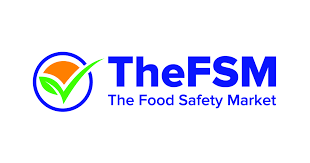
TheFSM (2020-2022)
Within the global food industry, food growers, manufacturers/processors, import/exporters, distributors, retailers, and packagers, are all expected to be certified to food safety standards. This highlights the importance of food safety and certification. The EU-funded TheFSM project will develop an industrial data platform to give a digital boost to the way food certification takes place in Europe. Specifically, it will build upon state-of-art blockchain technologies to create an open and collaborative virtual environment that facilitates the exchange and connection of data between different food safety actors interested in sharing information that is critical to certification. The project will conduct extensive piloting with European providers of inspection and certification services.
Keywords: Java, jCasbin, API Gateway, ABAC, Hybrid encryption, Thymeleaf, Spring Boot, Javascript, IntelliJ, MinIO, MySQL, REST, HTML 5, CSS 3, Swagger, Docker, CI/CD
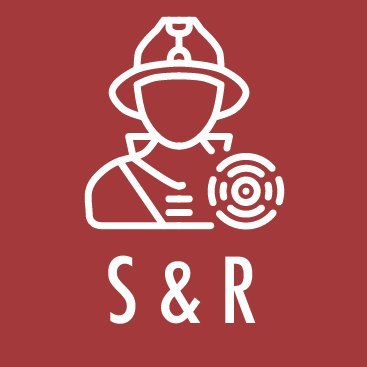
Search and Rescue (2020-2022)
The project will design, implement and test through a series of large scale pilot scenarios a highly interoperable, modular open architecture platform for first responders’ capitalising on expertise and technological infrastructure from both COncORDE and IMPRESS FP7 projects. The governance model of S&R will be designed to operate more effectively and its architectural structure will allow to easily incorporate next generation R&D and COTS solutions which will be possibly adopted in the future disaster management systems. The Model will also support a unified vision of the EU role and will provide a common framework to assess needs and integrate responses. The framework will enable supportive approach using a wider range of decisional support features and monitoring systems and will also give to first responders an effective and unified vision of (a) the dynamic changes going on during event’s lifetime and (b) the capabilities and resources currently deployed in the field.
Keywords: REST, RDF, OWL, Maven, Java, Spring Boot, RDF4J, IntelliJ, Elasticsearch, Docker

FENIX (2020)
The European Union faces several challenges caused by globalization. Both the delocalization of production plants (leading to more imported products) and the instability characterizing several industrial sectors force economies to re-think their business models and re-adapt them in a new context, where the sustainability of products and processes is more relevant. Within this overall framework, the need to think about innovative business models and industrial strategies, able to answer to these new requirements is mandatory. One chance is the exploitation of digital technologies. Another is the exploitation of secondary (and critical) resources that, currently, are wasted without any recovery. The project FENIX wants to consider both these issues and their potential at the same time, proposing something that could allow Europe to re-appropriate its pertaining position in the global market. The idea is to study innovative business models and industrial strategies (based on the circular economy paradigm) enabling the development of new product-services through the definition of novel supply chains, resulting from an unconventional mix of current ones. This could allow the easy re-use, reconfiguration and modularization of production systems, the exploitation of overcapacity and the renaissance of industrial poles all over the Europe. Furthermore, the circular economy driven business models and industrial strategies proposed by project FENIX will be demonstrated in existing pilot plants, adequately reconfigured and integrated based circular economy needs.
Keywords: Python, Keras, TF, SciKit-Learn, Numpy, Pandas, flask, REST, HTML 5, CSS 3, Java, Javascript, Maven, IntelliJ, PyCharm, Thymeleaf, Spring Boot, Docker, CI/CD
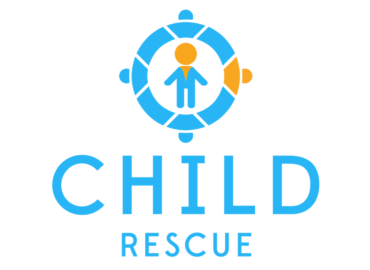
ChildRescue (2020)
ChildRescue is an EU funded project that aspires to effectively reduce the primary period between the moment a child is reported missing and the one when it is found, and to help predict and prevent the disappearance of Children in Migration, by increasing accuracy and timeliness of publicly and privately available information, by performing evidence-based predictions on the whereabouts of children in distress, and by providing location-based audience targeting of mobile alerts. ChildRescue will be instrumental in leveraging collective creativity, resourcefulness and action for a meaningful cause: to expedite more rapid and effective prevention and resolution of missing children cases, reducing the risks for the children and reuniting them with their families.
Keywords: Android Studio, Java, Maven

Nomothesi@ (Jul 2017 – 2019)
An important kind of government data is the data related to legislation. Legislation applies to every aspect of people’s living and evolves, continuously building a huge network of interlinked legal documents. Therefore, it is important for a government to offer services which make legislation easily accessible to the public, aiming at informing them, enabling them to defend their rights, or use legislation as part of their job. Towards this direction, many European Union (EU) countries have already automated the digitalization process by developing platforms for archiving legislation documents and offering on-line access to them.
Following the successful efforts of other countries throughout Europe, Nomothesi@ project aims at modernizing the way greek legislation is made public and providing high-scale legal services. We envision a new state of affairs in which ordinary citizens have advanced search capabilities at their disposal about legislation. We also envision that legislation is published in such a way that developers can consume it, and so that it can also be combined with other open data to increase its value for interested parties or people. Currently, there is no other effort in Greece or related decisions made by government institutions and administration alike which takes this perspective on legislation into considerations.
Based on the above principles, we developed Nomothesi@, a platform which makes Greek legislation available on the Web as linked open data. Nomothesi@ provides open access in a library of more than 12,000 pieces of legislation, interlinked with approximately 124,400 connections and over 8,000 unique entities, such as geospatial entities, persons, organizations and geographical landmarks (points of interest).
Keywords: Python, Keras, TF, SciKit-Learn, Numpy, Pandas, legislative knowledge representation, open data, e-government, RDF/OWL metadata, Spring MVC, universal resource identifiers, REST services

Airbnb-like Android application (2017 – 2018)
The aim of this project was to develop a fully-functional Android application like Airbnb supporting Google Maps API, different user roles, registration and room reservation, as well as hosting rooms.
Keywords: Android development, Java, Airbnb, Google maps
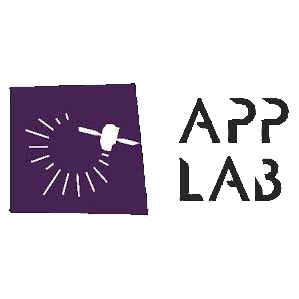
Copernicus App Lab (2017 - 2018)
Geospatial data manipulation and production in the topics of LAI (Leaf Area Index) of Paris (from netCDF format), NO2, O3, UV emissions in Europe and oil-spills in Sweeden for the Copernicus App Lab in addition to writing of scripts to automate tasks within the group and improve efficiency.

Named Entity Recognition and Linking in Greek Legislation (MSc dissertation, 2017-2018)
We show how entity recognition in Greek legislation texts can be achieved by utilizing a named entity recognizer (NER). Our work is the first of its kind for the Greek language in such an extended form and one of the few that examines legal text. We apply grid search on multiple neural network architectures and combination of hyper-parameters to maximize the efficiency of our approach. We show that, utilizing a big legal corpus we built word/token-shape embeddings using Word2Vec, and finally achieve 86% accuracy on average in recognition of organizations, legal references, geographical landmarks, persons, geo-political entities (GPEs) and public documents. The evaluation of our methodology is based on the metrics of precision, recall, f1-score per entity type for each neural network. Finally, we measure the ratio of correctly guessed links for the interlinking of RDF datasets produced by our approach with well-known public datasets and how new knowledge can be inferred indirectly by our approach from DBpedia, ELI (European Legislation Identifier) and GAG (Greek administrative geography) of Kallikratis.
Keywords: named entity recognition and linking, legislative knowledge representation, entity reference representation, linked open data, deep learning, entity generation

Development of a lending library website with user roles and shopping cart functionalities (2015-2016)
The aim of this project was to develop a fully-functional lending library website that supports multiple user roles, registration, shopping cart functionalities etc.
Keywords: web development, shopping cart, human-computer interaction
Cooperative Routing and Scheduling of an Electric Vehicle Fleet Managing Dynamic Customer Requests (2016)
Environmental issues and consumer concerns have paved the way for governments to legislate and help usher into operation alternative-fueled vehicles and pertinent infrastructures. In the last decade, battery-powered electric vehicles have been introduced and the service industry has followed suit and deployed such trucks in their distribution networks. However, electric vehicles do impose limitations when it comes to their traveling range. Replenishing the power to the vehicle batteries may entail lengthy charging visits at respective stations. In this paper, we examine the problem of routing and scheduling a fleet of electric vehicles that seek to satisfy dynamic pickup and delivery requests in an urban environment. We develop a web application to facilitate cooperation between organizations and individuals involved in urban freight transport. The application uses geolocation services and mobile devices to help manage the fleet and make timely decisions. Moreover, we propose three heuristic recharging strategies to ensure that electric vehicles can restore their energy levels in an effective manner. Through detailed experimentation, we show that the costs associated with the use of an electric vehicle fleet concern mainly the size of the fleet. The impact regarding the total route length traveled is less evident for all our strategies.
Keywords: urban cooperative computing, online scheduling for electric vehicle requests, power refueling for an electric vehicle fleet, GNSS

Capacitated Vehicle Routing with Time Windows (Undergraduate dissertation, 2015)
Capacitated Vehicle Routing Problem with Time Windows is a problem that has troubled academics for many years due to its difficulty (it belongs to the class NP) and many approximate solutions that are fairly sufficient have been proposed. Of course, a plethora of application of those solutions exists in practical applications. The goal of the program documented in the present thesis is to initially solve the problem based on classic methods from bibliography using real geographical data in Earth coords. After that, it communicates with a relational database which contains roads of Athens and info about their direction (unidirectional or bidirectional).
Furthermore, it communicates with an in-memory key-value store which contains additional dynamic info on roads. To be more specific, it contains positive and negative percentage weights that express dynamic roads' info. Positive weights represent traffic and have a value in the range of [0.0,1.0]. Negative weights represent drivers' experience that influences them to follow specific roads because they are aware that they will reach their destination faster that way and have a value in the range of [-0.5,0.0]. Negative weights do not have the same range as positive ones due to intuition as road traffic affects the decisions made a lot more than the driver's experience since a road could have a traffic jam in an unexpected scenario.
During the program's execution messages are being printed explaining algorithmic decision-making in critical parts and saved in intermediate files in order to study the results after execution. Finally, a kml and a html file are produced so that it's possible for the final result to be shown in any application capable of handling kml files (or html if the user wishes to view the visualization on the web). Most common applications capable of handling kml files are Google Earth, Google Maps and Marble.
Keywords: vehicle routing, time windows, scheduling, transportation, guided local search
Education
National and Kapodistrian University of Athens, Department of Informatics and Telecommunications
Grade: 9.39/10.0
National and Kapodistrian University of Athens, Department of Informatics and Telecommunications
Grade: 9.34/10.0
Distinctions
Greek State Scholarships Foundation (IKY)
Panellinios AC
Research Interests
Deep Learning for NLP
Legal Text Analytics
Information Extraction
Text Classification
Data Augmentation
Legal Knowledge Representation
E-Government – Linked Open Data
Publications
I. Angelidis, E. Politi, G. Vafeiadis, D. Vergeti, D. Ntalaperas, N. Papageorgopoulos.
A lightweight Ontology for real time semantic correlation of situation awareness data generated for first responders.
The International Conference on Computational Science and Computational Intelligence (CSCI). Las Vegas, USA, 15-17 December, 2021. [PUB] [BIB]
D. Ntalaperas, I. Angelidis, G. Vafeiadis, D. Vergeti.
A Decision-Support System for the Digitization of Circular Supply Chains.
Rosa, P., Terzi, S. (eds) New Business Models for the Reuse of Secondary Resources from WEEEs. SpringerBriefs in Applied Sciences and Technology. Springer, 19 June 2021. [PUB][E-PRINT][BIB]
P. Rosa (editor), S. Terzi (editor), B. Kopacek, C. Sassanelli, R. Rocca, S. Galparoli, A. Caielli, I. Birloaga, N. M. Ippolito, F. Vegliò, L. Poudelet, A. Castellví, L. Calvo, R. Ahlers, D. Ntalaperas, I. Angelidis, G. Vafeiadis, D. Vergeti, A. Spiliotis, A. Bianchin, G. Smyrnakis.
New Business Models for the Reuse of Secondary Resources from WEEEs The FENIX Project: The FENIX Project.
Springer, 2021.[PUB][E-PRINT][BIB]
T. Beris, I. Angelidis, I. Chalkidis, C. Nikolaou, C. Papaloukas, P. Soursos and M. Koubarakis.
Towards a Decentralized, Trusted, Intelligent and Linked Public Sector. A Report from the Greek Trenches.
LDOW/LDDL workshop, The Web Conference (WWW 2019), San Francisco, CA, USA, 13 May, 2019.[PUB][E-PRINT][BIB]
D. Punjani, K. Singh, A. Both, M. Koubarakis, I. Angelidis, K. Bereta, T. Beris, D. Bilidas, T. Ioannidis, N. Karalis, C. Lange, D. Pantazi, C. Papaloukas and G. Stamoulis.
Template-Based Question Answering over Linked Geospatial Data.
Geographic Information Retrieval (GIR 2018) workshop. Collocated with ACM SIGSPATIAL. Seattle, USA, 6 November, 2018.[PUB][E-PRINT][BIB]
Interests
Apart from being an IT professional, I thoroughly enjoy travelling and visiting archaeological sites.
I like spending a good amount of my free time exploring the open source community, learning about new technologies and tweaking computer systems.
I strongly believe in the benefits of choosing swimming as a form of exercising over regular gymnastics. I used to go swimming for 6 years in boarding school and have taken a liking to it ever since. Of course, swimming does not have to be limited during summer, if one can endure the cold!
I am also a Dungeons and Dragons roleplayer! I place emphasis on interesting character backgrounds with deep motivations. Currently participating in two campaigns.
When forced indoors, I like talking about psychology, philosophy, mathematics, history and physics, or watching a good movie with friends (pretty much any genre, from horror to sci-fi to fantasy to comedy). Furthermore, I have been a gamer for a long time. I love playing almost all genres and fancy playing single player titles, or with friends. I definitely enjoy debating about games and their various aspects (gameplay, story, mechanics, gimmicks etc.). Moreover, I am an aspiring DJ with a twist: I seek mostly music featured in games! When I am not live, Auto DJ takes over streaming tunes from my personal library, otherwise you can listen to my live music here: